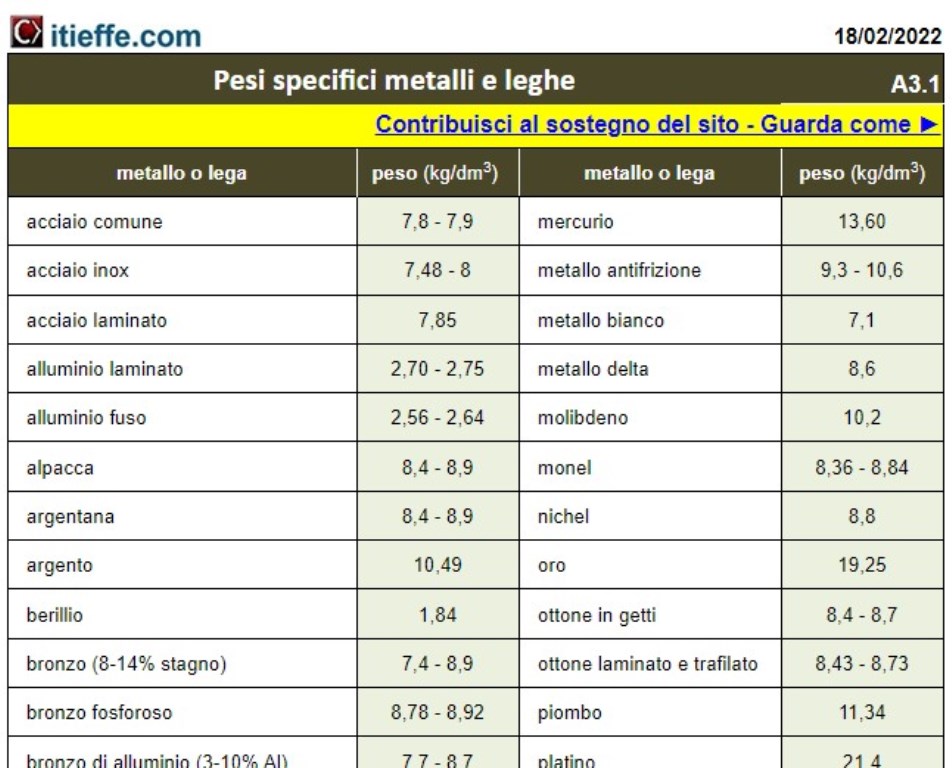Specific weights for metals and alloys

Specific weight, metals and alloys
The specific gravity of a material, also called density, is a measure of the mass of a given amount of that material per unit volume. In metals and metal alloys, the specific gravity can vary greatly depending on the chemical composition and crystalline structure of the material.
It is important to note that density can also vary with temperature and pressure, but these values typically represent standard conditions. Knowledge of specific gravity is important in many design and engineering applications, as it affects the performance and behavior of materials in different situations.
This work created by Itieffe aims to explore in detail the physical properties of metals and alloys, focusing in particular on the concept of specific weight or density. The specific weight represents one of the fundamental characteristics of these materials, directly influencing their behavior in various industrial, scientific and engineering applications.
In the paper, we will examine the specific gravities of known metals such as iron, aluminum, copper, zinc, gold, titanium and others, as well as metal alloys that are often used to improve the performance of these materials.
Additionally, we will explore the role of specific gravities in design and engineering, where choosing the right materials can make a difference in a product's performance and reliability. We will conclude with some reflections on the future applications of metals and alloys and how their specific gravity will continue to influence technological innovation.
This paper aims to provide a comprehensive overview of the specific gravities of metals and alloys, offering an opportunity to explore the world of materials in an in-depth and informative way.
Specific weights for metals and alloys
“Specific gravity”, also known as density, is a physical quantity that represents the amount of mass of a substance contained in a given unit of volume. In other words, specific gravity measures how much matter is concentrated in a specific space. It is usually expressed in units of mass per unit of volume, such as kilograms per cubic meter (kg/m³) in the International System (SI).
The general formula for calculating specific gravity is:
Specific Weight=Mass/Volume.
Where:
- “Mass” represents the amount of matter contained in the object or substance, usually measured in kilograms (kg).
- “Volume” indicates the space occupied by that mass, usually measured in cubic meters (m³).
Specific gravity can vary greatly between different substances and materials. For example, the specific weight of water is approximately 1000 kg/m³ at room temperature. This means that one cubic meter of water has a mass of 1000 kilograms. Denser materials, such as iron, will have a much higher specific gravity, while less dense materials, such as air, will have a much lower specific gravity.
Knowledge of specific gravity is fundamental in several scientific and engineering disciplines, as it affects various aspects, including the load-bearing capacity of structures and the choice of materials in specific applications.
Specific weights for metals and alloys
Other free programs of the same kind offered by itieffe ▼
Specific weights for metals and alloys
The program below is free to use.
To access the reserved version (see below), full page and without advertising, you must be registered.
You can register now by clicking HERE